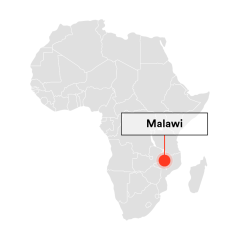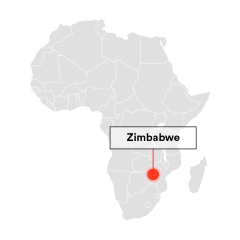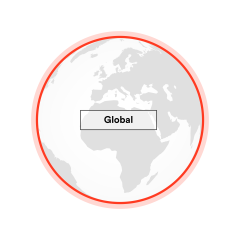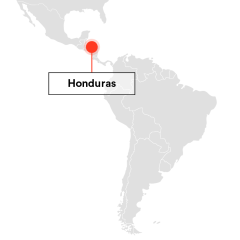Operate as ‘One UN’ in EVAWG programming

Operate as ‘One UN’ in EVAWG programming
Case studies

In Malawi, Spotlight Initiative aimed to increase collaboration and efficiency between UN agencies by establishing a shared office space known as ‘The Spotlight House’. All core team activities occurred in this office, promoting close inter-agency collaboration, reducing miscommunication and enhancing cost savings.
The Spotlight House also became a visible symbol in the community with nearby signposts showing the Spotlight Initiative logo and donor banner. This increased recognition of the initiative as a joint EU-UN effort within local communities.
The success of co-location prompted Spotlight Initiative district coordinators to adopt a similar approach. They negotiated arrangements with the Ministry of Local Government and Rural Development and district councils to share offices with government gender officers and social welfare officers. This daily UN-government interaction helped build the skills of local officials on ending violence against women and girls and made them feel more involved in Spotlight Initiative.



Spotlight Initiative programme in Zimbabwe adopted a new way of working, aligned with UN Reform principles. During implementation, the country team established a collaborative model, jointly developing terms of reference and action plans for coordinated interventions. Spotlight Initiative’s Inter-Agency Technical Team actively participated in each agency’s activities, including meetings, conferences and training.
“Delivering as one helps all the sector stakeholders, especially the government partners. It allows the Initiative to effectively plug the resources into all the components that will make something move.” - Spotlight Initiative Technical Coordinator, Zimbabwe
In 2019, the Spotlight Initiative Coordination Unit assessed the impact of this joint approach, revealing increased efficiency and more comprehensive, cross-cutting activities. The deepened engagement also included training on mainstreaming disability for the country team and implementing partners, reflecting the commitment to the principle of leaving no one behind.
Civil society engagement was strengthened through a unified call for ‘expressions of interest’, collectively drafted terms of reference, and joint capacity-strengthening seminars. This innovative approach helped streamline processes, increase programmatic and managerial efficiency, and comprehensively address violence against women and girls, reflecting a whole-of-system approach.



Several Spotlight Initiative country programmes worked together to improve administrative and operational processes, in line with the UN Reform’s Business Operations Support Initiative. This included actions like joint procurement and human resource processes. These efforts aimed to streamline expertise, reduce transaction costs and take advantage of economies of scale, leading to faster programme implementation. Examples include:
- Cost-shared budgets: In Liberia, the UN Resident Coordinator led efforts where Recipient UN Organisations identified opportunities to create cost-shared budgets instead of separately funding and implementing similar activities – an effective cost-saving approach
- Harmonised procedures: In Mali, the programme worked to align procedures for partner selection, joint evaluations, monitoring, and reporting among different agencies.
- Joint Terms of Reference: In Zimbabwe, the country team established joint terms of reference before recruitment and procurement processes.
- Joint field missions: In Honduras and Mexico, country teams organised joint field missions to connect with local authorities and community leaders
- Single, simplified ‘Call for Proposals or ‘Expressions of Interest’: Country teams in Honduras, Malawi, Nigeria and Zimbabwe successfully implemented joint processes for selecting implementing partners through single and simplified ‘call for proposals’ or ‘expressions of interest’, integrating interventions from civil society organisations across all outcome areas into one partner selection process. This joint call streamlined the application process for applicants, who only needed to submit one application to one UN counterpart, avoiding the complexity of responding to multiple calls from different UN organisations
- Interagency selection panel: In Mexico, the country team organised an interagency panel specifically for selecting consultants, experts and implementing partners. They also simplified administrative and financial rules.



Spotlight Initiative in Honduras recognised the need for improved coordination of communications and knowledge management among UN agencies. To address this, an interagency ‘toolbox’ was developed to pool communications products, resources and tools about VAWG. The preliminary mapping of communications activities, including EVAWG campaigns, publications and materials, can be found at Mapeo Preliminar de Piezas de Comunicacion Iniciativa Spotlight.
This collaborative approach is seen as innovative, with the potential to improve the impact of communication efforts by reducing duplication, leveraging expertise, and streamlining information dissemination. In the spirit of leaving no one behind, the toolbox aims to incorporate sign language so that people with hearing impairments will be able to access the materials.
In addition, an inter-agency repository was established to serve as a digital information system for managing knowledge. It houses a collection of products, reports and lessons learned, and was continually updated by the different UN agencies. Discussions are ongoing about how to ensure that this repository will continue to act as a sustainable storage for work on VAWG and gender equality.







